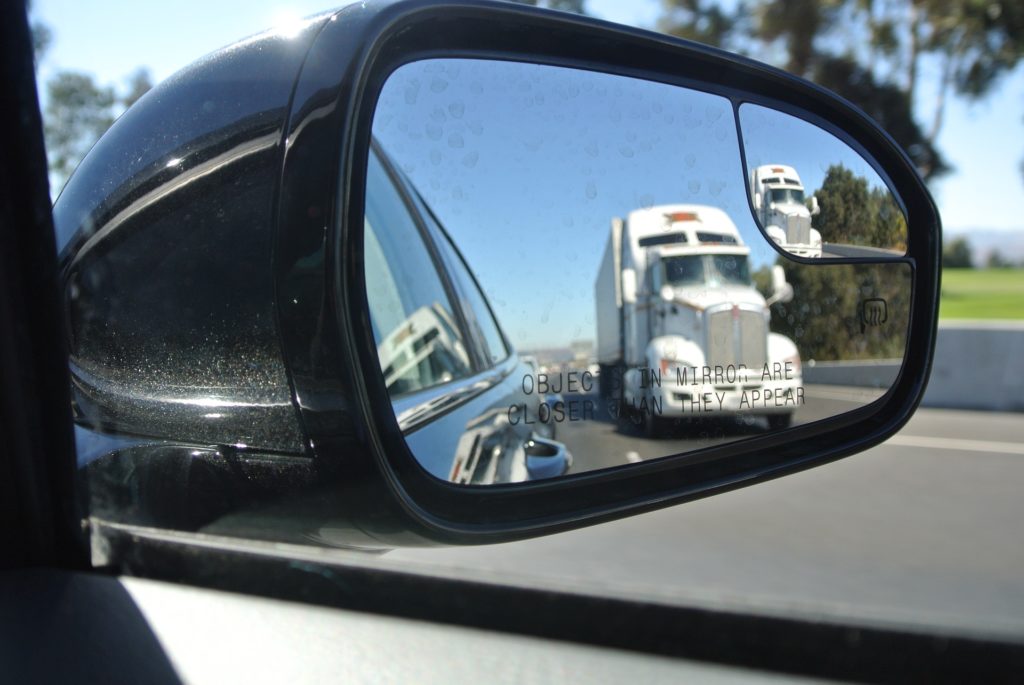Rear-view mirrors make me nervous. Especially the one on the passenger side that says, “Objects in mirror are closer than they appear.” How am I supposed to know how much closer? My exit is coming up and I need to get into the right lane so I check my mirrors. The right one looks like I have plenty of room and the one above the dash looks like nothing is there. But the fact is that if I pull over, it could get expensive. And the mirror on the left can be a liar too. It can make you think that you’re the only one in the vicinity while in truth there’s a car in your blind spot and there’s not room for two of you in the left lane.
I don’t like things sneaking up on me. Jim does this all the time. Not on purpose, mind you. He’s just a quiet guy and all of a sudden, there he is about two or three feet away. It makes me jump and makes my heart beat faster. I was thinking about getting him a bracelet with bells on it but it would be a waste of time because he doesn’t like jewelry. So how are you going to know what to do when things are “closer than they appear?”
Even though Moses didn’t have a car, he had the same problem. At the end of his life he was giving the Israelites a summary of the past 40 years. Many of them weren’t born yet when they left Egypt and he didn’t want them to forget their history as they prepared to take over the promised land. Twice as he is recounting where they had been and what God had done for them, he tells them, “Because of you the Lord became angry with me” and told me I couldn’t go into the land. But Moses’ rear-view mirror was distorting the facts. The reason Moses was prohibited from crossing the Jordan was his disobedience and his bad attitude. Even though it says in Numbers 12:3, “Moses was a very humble man, more humble than anyone else on the face of the earth,” his pride got the best of him and he didn’t honor God as holy. It wasn’t the peoples’ fault that he couldn’t go into Canaan, it was his own. But years later that’s not how he remembered it.
How easy it is to have a distorted view of what’s behind us. And how easy it is to blame others for problems that we have caused ourselves. The truth is, no one can “make” you unhappy or angry or spiteful or dishonest or bitter. When people or circumstances push us to the limit, the way we respond is our choice. Our old attitudes are closer than we might think. So take a good hard look in the mirror and ask God to show you your blind spots. And when things sneak up on you, try to react in a way that will make the rest of the trip less stressful.
Dianne

